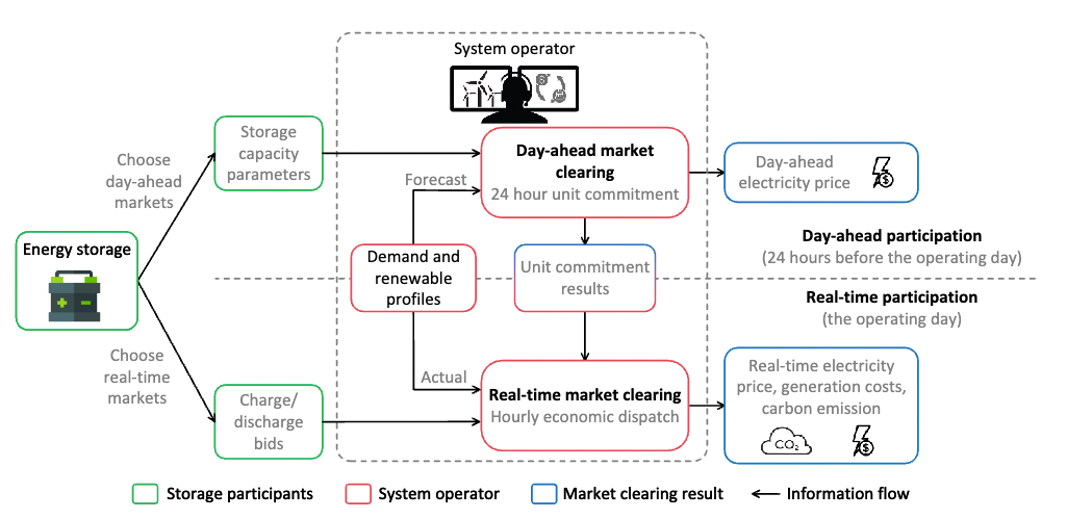
Breakthrough solutions and technological innovations can only contribute to decarbonization by integrating into existing infrastructure and systems. In LCSE, we develop system-level decision making models involving optimization and machine learning to deploy new technologies in various sectors to achieve decarbonization goals while trading off investment returns, societal costs, and reliability. Our approach follows theoretically-founded, ground-up design to accurately model technological and operational details that are often neglected in bulk-scale techno-economic assessment models. This is made possible by our focus on designing in-house specialized algorithms to simulate new technologies that provide high performance computation, surpassing proprietary commercial solvers in terms of computation speed and hardware requirement.
In our study on investigating integration pathways and market designs of energy storage, we developed an in-house bidding model to simulate how storage can bid into existing and upcoming electricity market models at high resolution granularity of every five minutes. This enables us to accurately observe storage’s contribution to integrate renewable fluctuations and demand variables. By investigating different bidding objectives and market choices, our study observed storage can have varying impact over carbon emission reductions and system cost reductions. The result will provide insights on future market designs and incentives to best utilize storage for economic decarbonization in the energy sector.
Related projects:
- Industry Acceptance of Energy Storage (LCSE PI: Bolun Xu)
- Computation-efficient Algorithms for Grid-scale Energy Storage Control, Bidding, and Integration Analysis (LCSE PI: Bolun Xu)
- Positioning Energy Storage Technologies with Stochastic Climate Scenarios (LCSE PI: Bolun Xu, co-PI: Upmanu Lall)
- Offshore wind energy integration and energy storage deployments (LCSE PI: Bolun Xu, co-PI: Yue Zhao, Stony Brook, Fengyu Wang, NMSU)
